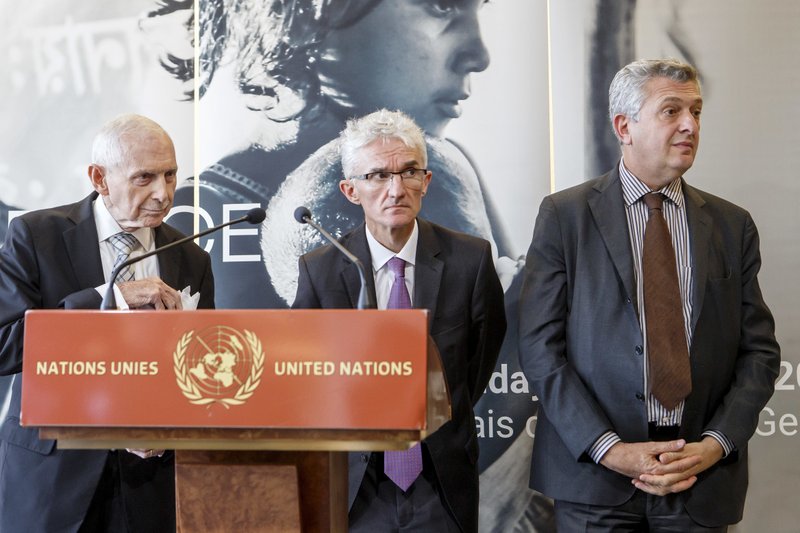GENEVA -- Governments and international donors pledged $234 million on Monday to help the more than 600,000 Rohingya who have fled violence in Burma into neighboring Bangladesh over the past two months.
The head of the U.N.'s aid coordination agency said a one-day conference co-hosted by the European Union and Kuwait's government had taken important strides in meeting a recent U.N. target for $434 million in aid for Rohingya refugees through February. At the start of the conference $116 million had been committed already.
Mark Lowcock, head of the U.N. Office for the Coordination of Humanitarian Affairs, told reporters that new pledges Monday raised the total to $340 million.
However, Office for the Coordination of Humanitarian Affairs spokesman Vanessa Huguenin clarified later that while all that money was destined for the Rohingya crisis response, not all was going to U.N. programs: Some would help the Red Cross response or bilateral programs outside the United Nations, she said in an e-mail.
Lowcock said more contributions were still expected, though he added he wasn't able to immediately specify whether those would come in Monday or at a later date.
A U.S. State Department official said the U.S. has already given $40 million for the Rohingya refugee response and was not pledging any more money Monday. The official said: "We are currently reviewing appeals for possible additional funding."
Canada also said it wasn't providing more funding at Monday's meeting but appeared likely to do so shortly.
The U.K. pledged an additional $15.8 million, increasing its total contribution to $62 million since the end of August.
International Development Secretary Priti Patel urged other countries to step up their support, which she said was "absolutely vital to save the lives of victims of the world's fastest growing humanitarian crisis."
Patel says "the world cannot afford to wait as innocent men, women and children continue to lose their lives."
Speaking to conference attendees as the session opened, Lowcock lamented the "humanitarian and human rights nightmare" faced by Rohingya refugees in Bangladesh. He said the main focus of the event was "mobilizing resources to save lives and protect people."
The U.N. High Commission for Refugees, the organization's refugee agency, said earlier Monday that an estimated 603,000 people have fled into Bangladesh since security forces in neighboring Burma initiated a violent crackdown against the ethnic minority on Aug. 25 in the wake of militant attacks.
The influx comes on top of hundreds of thousands of Rohingya who had fled into Bangladesh previously.
Lowcock also didn't rule out that U.N. officials could appeal yet again to "generous" donors in the future, depending on how circumstances develop.
Standing beside Lowcock, Director-General William Swing of the International Organization for Migration -- who recently visited the region -- said that based on current trends, "the numbers are expected to exceed a million fairly shortly."
More than half of those who have fled in the latest wave are children.
The scorched-earth campaign by Burma's security forces has involved killings, rape and the burning of entire villages. Burma's government has said it was responding to attacks by Muslim insurgents, but the United Nations and others have said the response was disproportionate.
The U.N. human rights chief, Zeid Ra'ad al-Hussein, has decried a "textbook example of ethnic cleansing."
A Section on 10/24/2017

